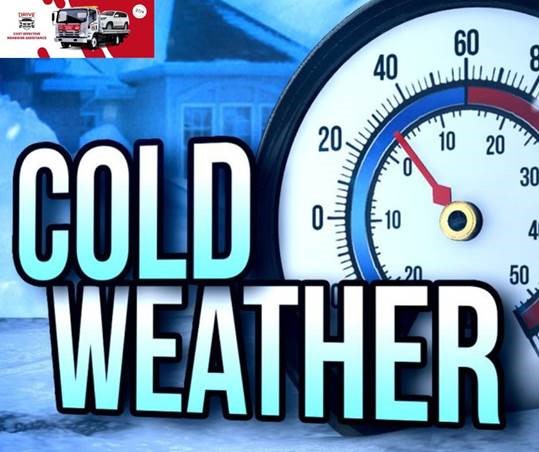The cold dark mornings have crept back into our daily lives and once again, our cars are bearing the brunt of the cold weather and becoming sluggish as we head deeper into winter. What do you do in the morning when your car won’t start? You should be on your way to a crucial meeting or school run but you’re faced with calling a rescue service, ordering a taxi and making grovelling phone calls to apologise and try to rearrange all your important appointments.
It’s a common occurrence as low temperatures can cause your car battery to produce less current, making it that much harder for your engine to turn over in the morning. The cold can also stop your engine oil from flowing as well as it should, which puts even more strain on the battery. Essentially, cars and cold don’t get on well.
In this guide, we look at the main reasons why cars can struggle to start on cold mornings, Here are practical tips on how to get the engine going, and show you how to prevent non-starters in the future.
Car Battery Issues… What’s the problem?
Car batteries produce less electrical current when it’s cold, due to the chemical reaction being slower than on a warm day. Cold batteries simply don’t produce the same amount of power as warm batteries, and this effect can lead to starting issues. This issue is further compounded by the fact that more demand is placed on the battery in cold conditions. From seat warmers to heated wing mirrors, all that extra power can place strain on an already depleted battery – making starting problems even more likely.
How to solve it
There’s no quick fix to solving battery problems in the winter – except perhaps swapping your car’s old battery for a new one. The best way to avoid battery problems in cold weather is to keep the battery fully charged. That means taking your car for a long drive to charge the unit or else doing it manually with a battery charger. You should also avoid switching on lots of electrics all at once straight after starting your car, as this could eat up all your car’s remaining power before you’ve even got moving.
Oil Thickening… What’s the problem?
When it’s cold, engine oil becomes thicker and doesn’t flow around the engine as well. This means it’s more difficult to pump through the engine block, placing additional strain on the battery. If the battery is already low on power, this can result in a non-starter.
How to solve it
Always make sure you’re using the right oil in your car, as recommended by the manufacturer. You should replace the oil at least once a year as part of an annual service to make sure it’s in the best condition and offers maximum protection for your car’s engine.
Fuel-Related Problems… What’s the problem?
In the rare event that there’s moisture in the fuel lines, this can freeze and cause a fuel blockage, meaning the engine won’t start. This is particularly common in thin fuel lines, which are easily blocked. And as for diesel drivers, bear in mind that diesel ‘gels’ in the cold, meaning it will take longer to deliver power to the engine on start-up.
How to solve it
Always make sure your car’s fuel cap is securely refitted after filling up, as this will limit moisture and condensation within the fuel tank. We’d also recommend keeping the tank fuller in the winter months to reduce the space where moisture can condense on the sides of the fuel tank. As for diesel drivers, you’re unlikely to notice any issues with fuel gelling, but it is something to bear in mind. Go easy on the accelerator for the first few miles or so after a cold start to give the fuel chance to warm up and become more fluid.
Turn everything off
All your standard electrical accessories such as headlights, heaters and radios use up battery power, so turning all of these off before trying to start the car will give the battery a much better chance of getting the engine going. If your engine does start, let it run a while before you switch any of these accessories back on or you run the risk of killing the battery again.
The best roadside assistance plans help you deal with unexpected situations, especially ones you may encounter during long road trips far from your accustomed surroundings. Drive Zimbabwe Roadside Assistance is the go-to for your towing needs in the country. We offer a wide range of towing services from recovery, tyre change, jump starts, and more. Get your hands on a DZRA 1-year membership now. Call us or WhatsApp at 0780 579 261/0718 084 297 / 0736 523 424 Office+8677160725 Email:info@drivezim.co.zw

